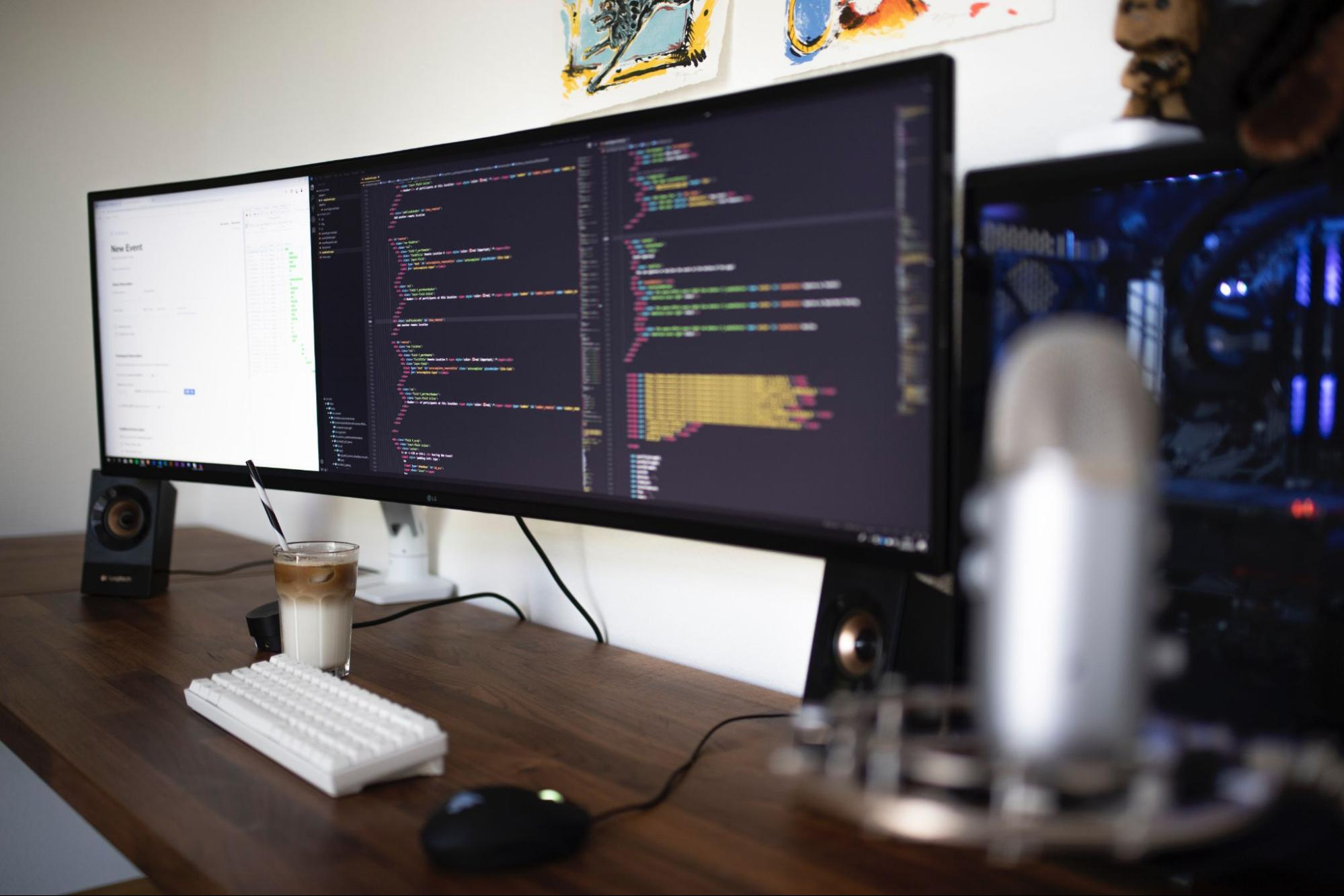Best Docker-based solutions for Drupal web developers
Docker-based tools are great for local development settings because they do not take up a lot of space and can start quickly. More open-source projects are using Docker images to make it easier and faster to install their programs and work together. Docker can make it easier to set up and maintain projects. You don't have to do a lot of steps like with manual installs. When you use Docker Compose, updating or installing the project usually only takes one line of code. This is better than manual installs.

What is Docker?
What is docker used for? Docker is used for running multiple workloads on fewer resources, standardizing environments, streamlining the development lifecycle, and developing portable workloads that can run on multi-cloud platforms.
A container is a type of software that packages up code and everything it needs to work properly so that it can run quickly and reliably no matter what kind of computer or device it's running on. A Docker container image is like a box with all the parts needed for an application inside, like the code, system tools, and settings. When a Docker container image runs on the right software (Docker Engine), it turns into a full-on container. Containers are available for MacOS, Windows, and Linux applications, which means they'll always work no matter where they are running from, even if there are differences between development and staging. Containers also keep the software isolated from its environment so that it works consistently across different places.

In 2013, Docker container technology was released to the public. It uses cgroups and namespaces from Linux computing to help developers and systems operators separate application parts from infrastructure parts. With help from Microsoft, Docker could be used on Windows Server too. Now, data centers and cloud providers use Docker for their services, as do open-source serverless frameworks.
Containers and virtual machines are both ways to make sure a computer is running an application correctly. Containers work by taking the code and any extra parts it needs and putting them all together in one place. This takes up less room than VMs, which copy the whole operating system for each app. VMs can take up more space on a computer, but they do make sure that each application runs separately from other applications. Using containers and virtual machines together gives you a lot of options for setting up and taking care of applications.
Docker-Based Solutions for Drupal Web Developers
Docker is a tool that allows you to run applications in isolated containers, which are lightweight and portable. Docker-based solutions can help you avoid the hassle of installing and configuring multiple software components on your machine and also make it easier to share and collaborate on your projects with others.
There are many Docker-based solutions available for Drupal web development, but here are some of the most popular ones:
Lando
Lando is a free, open-source, cross-platform tool that lets you quickly specify and spin up the services and tools you need for your projects. It supports many PHP frameworks, including Drupal, WordPress, Laravel, Symfony, and more. Lando also integrates with popular hosting platforms like Pantheon, Platform.sh, and Acquia. You can find more information about Lando on its official website or on its GitHub repository.
DDEV
DDEV is another open-source tool that makes it simple to get local PHP development environments up and running within minutes. It works with Linux, Mac OS, and Windows, and supports Drupal, WordPress, Laravel, Magento, TYPO3, and more. DDEV also provides features like snapshots, backups, import/export, SSL support, and xdebug integration. You can learn more about DDEV on its official website or on GitHub

Docker4Drupal
Docker4Drupal is a set of Docker containers optimized for Drupal. It uses docker-compose to spin up a local environment with various services like Nginx, Apache, PHP, MySQL, MariaDB, PostgreSQL, Redis, Memcached, Solr, Elasticsearch, etc. You can customize your environment by editing the docker-compose.yml file or using environment variables. You can find more information about Docker4Drupal on its GitHub repository.
Docksal
Docksal is a tool for defining and managing development environments. It uses Docker to create fully containerized environments, along with VirtualBox to support macOS, Linux, and Windows. Docksal also provides a command-line interface (fin) that simplifies common tasks like project initialization, configuration, database operations, testing, etc. More on GitHub
If you are looking for some alternatives for your local development environment, you might want to check out these options:
Warden
A tool that helps you run multiple Drupal, Magento, Symfony, Laravel, and WordPress projects on Docker with HTTPS support, xdebug, and more. It also integrates with Mutagen for fast file synchronization.
Laradock
A full PHP development environment based on Docker that supports a variety of services and frameworks, including Laravel, WordPress, Drupal, Symfony, and others. It allows you to choose from pre-configured Docker Compose files or customize your own.
Devilbox
A modern and highly customizable Docker LAMP/LEMP stack that supports multiple PHP versions, databases, and web servers. It also features a web-based intranet with tools like phpMyAdmin, MailHog, and Adminer.
Dockware
A Docker-based solution for Shopware development that comes with different editions for different needs. It includes a fully installed Shopware instance, a web-based admin panel, and various tools and commands.
These are some of the best Docker-based solutions for Drupal web development that you can try out today. They all have their own advantages and disadvantages, so you might want to experiment with them and see which one suits your needs and preferences best.
